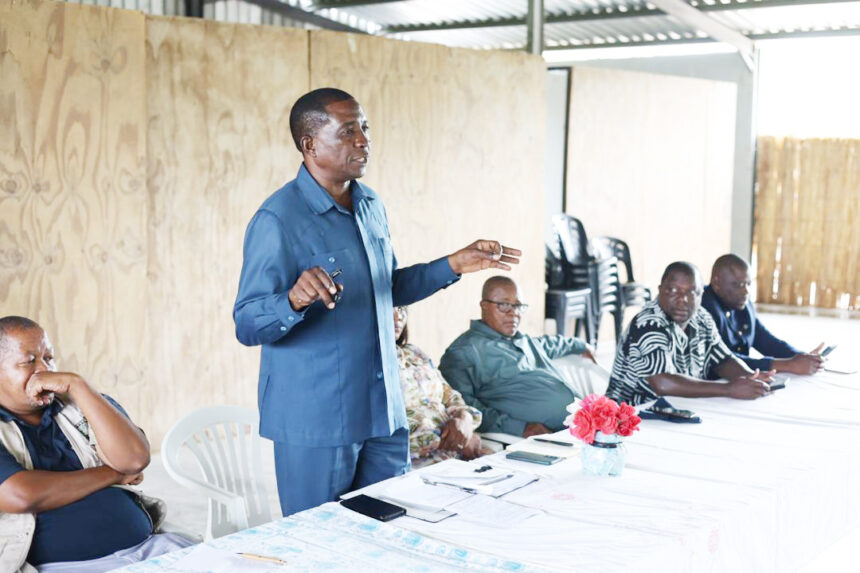Zurretta Zia Maveoro
Residents of Aussenkehr continue to endure severe challenges, including a lack of decent housing, poor sanitation and a lack of clean drinking water.
It is a situation which has forced many residents to fetch water from the Orange River for their daily consumption.
Although Aussenkehr – a settlement known for its thriving grape industry valued at nearly N$1 billion a year – was declared a settlement (a form of local government), development has not really kicked off since independence.
Last month, the National Council Standing Committee on Transport, Infrastructure and Housing summoned the Ministry of Urban and Rural Development for an engagement to answer questions on why the government has failed to deliver services to Aussenkehr residents.
This followed an earlier oversight visit by the committee to Aussenkehr intended to assess the housing and land delivery at the settlement.
The committee was informed that for over three decades, residents and seasonal workers who come to work on the grape fields have endured hardship, living in improvised structures made from flammable reed and zinc, with little to no basic services.
The lack of decent housing could be attributed to the fact that the settlement has failed to formalise since it was declared by the regional council.
This despite the settlement sitting on 600 hectares of land which was donated to the government through the //Kharas Regional Council by a private farmer for the purposes of expanding the settlement.
The donated land has, however, been caught up in controversies, as the farm owner had set specific conditions, including a 10% interest on all development on the land.
Although part of the donated land was serviced, at a cost of over N$40 million, installation of facilities such as a water treatment plant, an electricity network, and road surfacing were abandoned before completion and have since been vandalised.
A completed health facility also remains non-operational due to a lack of running water and a functional sewer system.
The committee also learnt that officials recruited to administer the affairs of the settlement have been stationed at the regional council office in Keetmanshoop due to lack of office space at Aussenkehr.
During the engagement, committee chairperson Alfeus Kaushiweni Abraham raised concerns about the lack of interest and commitment by the ministry to address the challenges at Aussenkehr.
He also questioned the legitimacy of the agreement the government had allegedly entered into with the farm owner who had donated land for the expansion of the settlement.
The committee also questioned why Aussenkehr was approved as a settlement despite its unresolved infrastructure issues.
Meanwhile, the ministry’s executive director, Wilhelmine Shivute, did not provide clarity on the issues at Aussenkehr and promised to investigate and revert.
The chairperson also expressed disbelief upon learning that the ministry’s director of habitat and housing development last visited Aussenkehr in 2019, calling the five-year absence “absurd”.
* Zurretta Zia Maveoro is a media intern at the National Council.



